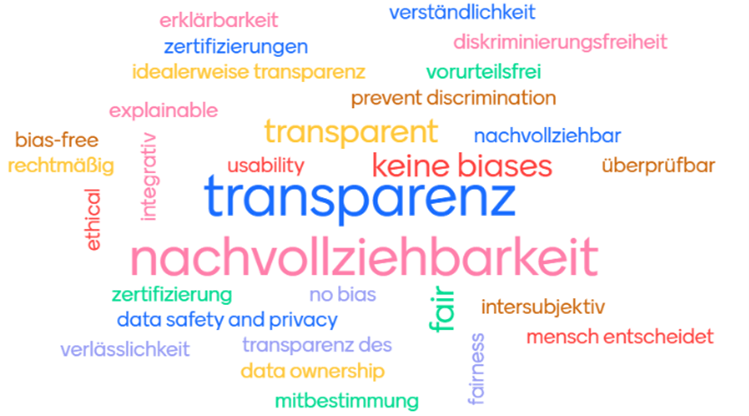Trustworthy AI: a working definition
There is, as yet, no uniformly accepted definition of Trustworthy AI. However, several leading groups of experts have already laid the foundations that can be built on. For leiwand.ai trustworthy AI is a design choice, and needs to be pursued throughout the AI system lifecycle.
Systems based on data, algorithms, robotics – in short, AI systems – now produce automated recommendations and predictions that can influence many aspects of our lives, including what products are offered to us at what price, which information we see, whether we are hired or fired, our chances of university admissions, whether or not we get bank credit, our insurance premiums, where police patrols are sent, even judicial decisions on parole. We interact with them in the form of chatbots, robots, and self-driving cars. They supposedly detect and recognize our faces, gender, sexual orientation, age, and even emotions and personality.
We have developed AI systems that can be highly invasive, without asking why they should be permitted such intimate insights, whether we agree with their stated goals, and if yes, whether they actually deliver upon their claims.
AI technologies have already demonstrated their disruptive power. In order to ensure the disruptions are constructive rather than destructive, these innovations need to be embedded in systems of trust. What exactly will constitute a trustworthy AI system is still a matter of debate, but several leading groups of experts have already laid the foundations. Commonly agreed traits of such systems include: transparency and explainability, reliability, fairness and non-discrimination, security, verifiability, and accountability.
The goal of leiwand.ai is to help companies bring these commonly agreed principles into action, and develop and deploy trustworthy AI – AI that delivers what it promises, fairly. Trustworthy AI is not a simple label that can be attached to a product in hindsight: it is a design choice, and needs to be pursued throughout the AI system lifecycle – and we will be there to support the entire process.
“Data scientists and machine learning engineers often like to quote the adage “In God we trust, all others must bring data.” It is, perhaps, time, that those developing and deploying AI systems deliver the data to prove that their systems are worthy of trust.”
-Rania Wanzir, PhD
If you want to know more about Trustworthy AI, get in touch!



